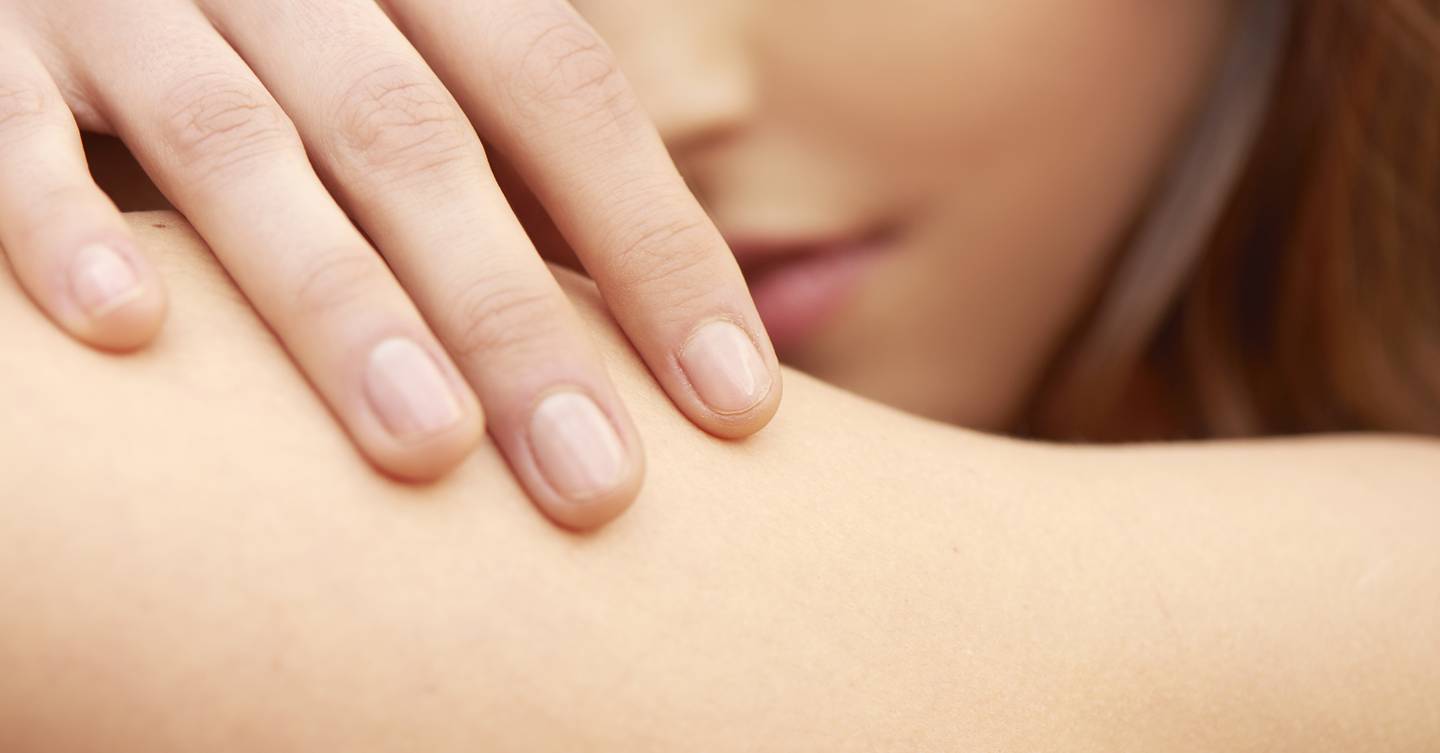Ever find yourself forgetting, even just for a split second, that your body is a part of you? Maybe you’ve found yourself looking down at your body and being overcome with a sense of total weirdness that your body parts belong to you. Well, take that momentary feeling of ignorance and confusion and multiply it tenfold – I lived with that feeling for almost a whole year.
It sounds weird, I know, but it’s a real condition. Dr Max Malik, Psychiatrist at Elate Health explains: “Dissociation is a psychological experience in which people feel disconnected from their sense of self. It is often experienced as a feeling of intense alienation in which the person suddenly loses their sense of where they are, who they are, and what they are doing.” And this sense of dissociation can apply specifically to the body, too. It can lead to a person feeling totally detached from their body and the world around them.
My issues started back in 2017 when I discovered a lump in one of my breasts. This isn’t something that someone with severe hypochondria ever actually dreams of happening. You think about it, sure, but deep down, every time you’ve convinced yourself your swollen gland is cancer or that your headache is just a symptom of a brain tumour, there’s a tiny voice in the back of your head telling you that it’s your hypochondria talking. This time, there definitely was a lump and I forced myself to book in for a check up. I began to hate my own body for putting this stress on me and, in the run up to my appointment, I could barely look at myself in the mirror.
One week later, laying on a bed covered in tissue, the doctor carrying out an ultrasound confirmed that there was no cause for concern. It was diagnosed as fibroadenoma – a totally benign lump that many young women develop – and I was told to keep an eye on it and come back if it ever grows in size. I left the hospital expecting everything to go back to normal, but that never really happened. My hypochondria worsened and I just carried on ignoring every illness or symptom that came my way, because in my head, my body being ill didn’t impact me.
After roughly ten months, neglecting my body had noticeably impacted my weight. I ate and ate without considering how what I was putting into my mouth might affect the rest of my body – because as far as I was concerned, it wasn’t part of me. My surprising ability to totally ignore my own body stunned those around me – but I was blissfully unaware of what I was doing. I lived without full-length mirrors and only bought clothes to replace the ones I had ‘grown out of’. In hindsight, everything makes much more sense. Psychologist and founder of the Health Psychology Clinic, Joanna Konstantopoulou says: “A trigger for body dissociation might be a traumatic event or too much stress, where the mind responds with dissociation to cope. It could also be that a person experiences body dissociation as a coping strategy to deal with the stress and anxiety caused by the other medical issue.”
My systems were obvious and everything added up, but it wasn’t until some close friends sat me down to raise the issue that I realised what was happening. I needed to find a way to reconnect with my body. So, being a beauty editor, I turned to the only form of self-care I really knew and I ran myself a warm bath. I hooked out all of my body care products that had been neglected for so long and really indulged. I scrubbed my arms, shaved my legs and moisturised myself from top to toe. “Self-care can definitely help with body dissociation, especially spending more time with your body and following a body care regime. An efficient technique is dry skin brushing which can be very effective in helping people deal with body dissociation. Try to make lifestyle changes to help you with daily stressors. Make sure you get enough sleep, use relaxation techniques when you are feeling stressed and anxious, maintain a healthy diet, and exercise regularly,” reveals Joanna.
After a week of ‘treating’ myself to a nightly bath, I managed to pluck up the courage to check my lump for the first time in months. Everything seemed normal. It was still there, no bigger, no smaller, but very much a part of me. One year on and I’m still making time for a bath every night. I’ve even started integrating aspects of aromatherapy into my regime as a means to help manage any anxious or dissociative thoughts I might have.
If my body dissociation taught me one thing, it’s that keeping busy makes it really easy to ignore the issue and carry on as ‘normal’. But, when normal is detrimental, it’s important to stop and be with yourself for a moment. For me, that just so happened to come in the form of physical contact. The very action of moisturising and scrubbing, combined with a calming self-care ritual, helped me come to terms with the body struggles I was refusing to face. I just wish I’d tried it sooner.
